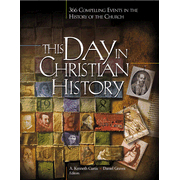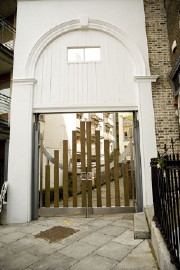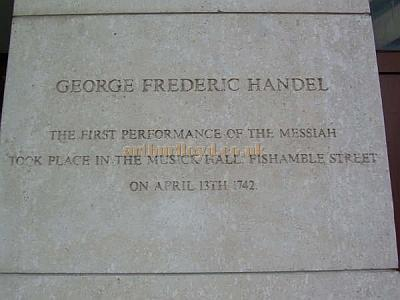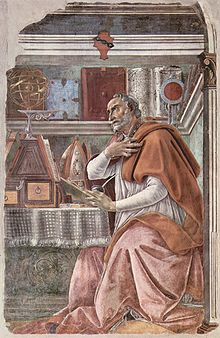 Series: On This Day in Christian History – “Raised to New Life”
Series: On This Day in Christian History – “Raised to New Life”
By A. Kenneth Curtis and Daniel Graves
“And we were baptized and all anxiety for our past life vanished away.” With these joyous words Augustine recorded his entrance into the church on this day in 387.
It had taken Augustine thirty-three years to get to the public confession of Christ that was represented by his baptism. He was born in North Africa in 354 to a Christian mother and a pagan father. He became a student in Carthage at twelve years of age. At sixteen, he began to teach grammar.
While he was young, he became promiscuous. He tells in his famous Autobiography that he boasted of sins he had not had the opportunity to commit, rather than seem to have fallen behind his peers.
His mother, Monica, was determined to see him converted. He was equally determined to have pleasures. He took a mistress, and she bore him a son, whom they named Adeodatus, which means “gift of God.” For awhile Augustine resented the lad but soon became inseparable from him.
When he was twenty-nine, Augustine’s restless spirit drove him to Italy. His mother decided to accompany him so that her prayers might be reinforced by her presence. But Augustine gave her the slip, sailing away while she knelt praying in a chapel.
In Rome he taught rhetoric for a year, but was cheated of his fees. And so he looked for a more fertile field of labor and settled on Milan. His mother caught up with him and prevailed upon him to attend the church of St. Ambrose. Augustine found that Christian singing moved him deeply, and in spite of himself he began to drift toward his mother’s faith. He found the writings of the Apostle Paul deeply stirring and more satisfying than the cool abstractions of philosophy. He wrestled with deep conviction but was unable to yield himself to God because of his strong attachment to the flesh.
Finally he reached a day when his inner struggles were too great to bear. He tried reading Scripture but abandoned the effort. Unable to act on the truth he knew, he began to weep and threw himself behind a fig tree. “How long, O Lord,” he cried. And his heart answered “Why not now?” A child’s sing song voice came clearly to him, repeating over and over, “Take it and read it.” It seemed a message from God. Augustine snatched up the Bible and read Paul’s words:
“Let us behave decently…not in orgies and drunkenness, not in sexual immorality and debauchery, not in dissension and jealousy. Rather, clothe yourselves with the Lord Jesus Christ, and do not think about how to gratify the desires of the flesh” (Romans 13:13-14).
Faith flooded upon him. He immediately thrust aside the sins of the flesh that had held him in bondage. “But faith would not let me be at ease about my past sins, since these had not yet been forgiven me by means of your baptism.” He entered the water and was relieved.
After his mother’s death, Augustine returned to Africa, where he founded a monastery and became the bishop of Hippo and a brilliant and prolific theologian. More than any other man, his imprint was stamped upon the medieval Church.
Other Significant Events on April 25th in Church History:
799: Pope St. Leo III’s eyes were stabbed and his tongue torn out in a conspiracy by the nephews of an earlier pope. He recovered and crowned Charlemagne emperor.
974: Ratherius, who raised a ruckus to end clergy marriages, died on this day.
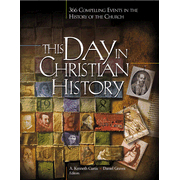 1475: A young Savonarola left home and walked to Bologna, taking the family Bible with him. He became a monk and later a reformer. He was eventually martyred for his faith.
1475: A young Savonarola left home and walked to Bologna, taking the family Bible with him. He became a monk and later a reformer. He was eventually martyred for his faith.
1800: William Cowper, a depressed but original poet and hymn writer, died. He is remembered for his friendship with ex-slaver John Newton and for his hymn “There is a Fountain Filled with Blood.”
1879: Joseph Barber Lightfoot, considered the greatest biblical scholar of his day, was consecrated as bishop of Durham. He was a godly man and became one of the greatest bishops of the day.
1911: A rare Gutenberg Bible sold for $50,000, the equivalent of at least $500,000 today.
Adapted from the April 25th entry in This Day In Christian History, edited by A Kenneth Curtis and Daniel Graves, Camp Hill, PA: Christian Publications



